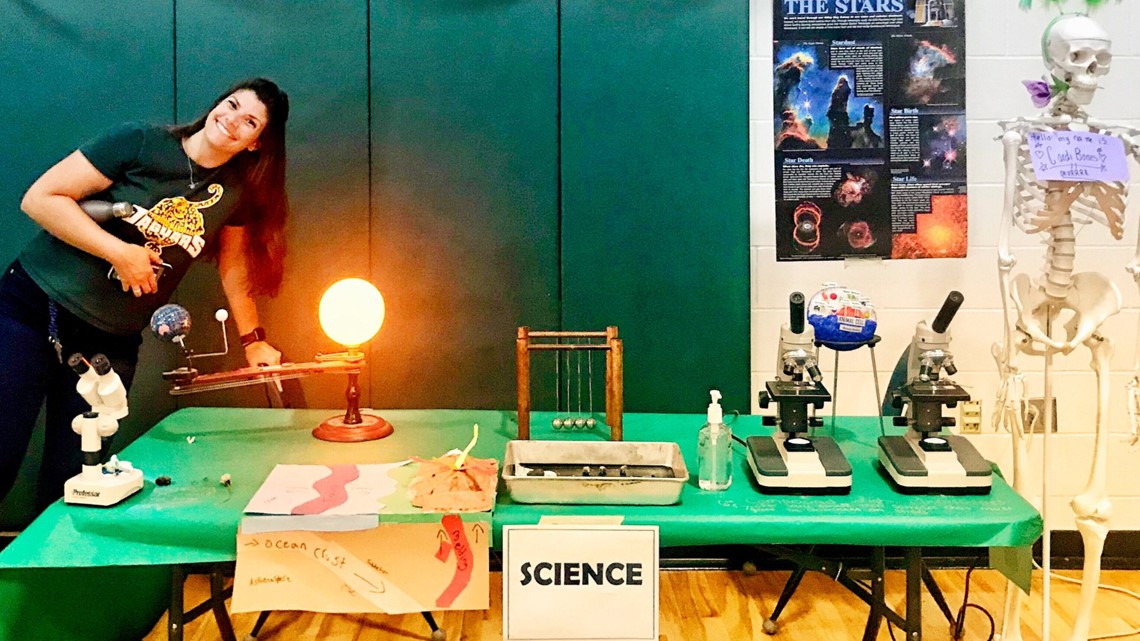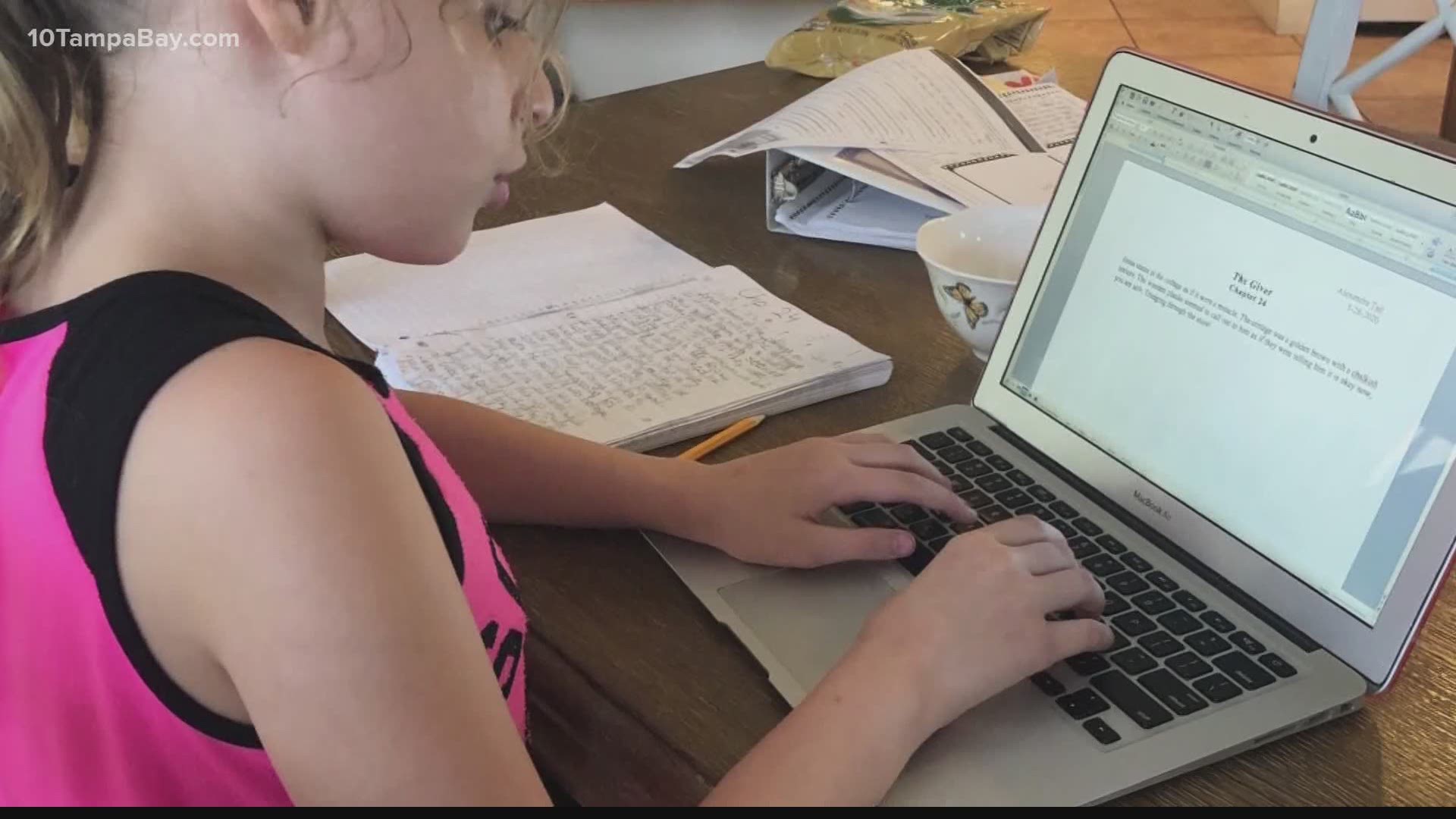ST. PETERSBURG, Fla. — With most kids in the Tampa Bay area back to school within a week from now, the race to get students and teachers ready for the new normal is on.
For some it'll be in the classroom, others in front of a screen, and then there are some totally reinventing the wheel. Students, parents and educators around the world are finding new options for school.
Julie Shamas, a Tampa Bay ER doctor and mom of two based in St. Petersburg started a Facebook group hoping to connect parents and educators looking for alternatives to typical schooling during the pandemic.
The group quickly grew in a month's time to almost 5,000 members. Shamas is most amazed at the wide variety of options people are coming up with to make school work for their family in 2020.
"We do want to be in a group of kids, we don't want to be by ourselves, maybe we're doing eLearning, we have 5-6 people together, sometimes different ages, sometimes the same age," Shamas said of the kinds of posts she sees on the page.
Shamas now home-schools her daughters with the help of a hired teacher. She thinks the group has opened parents' eyes to the various enrichment alternatives available to students that they otherwise wouldn't have found had it not been for the pandemic.
"This is grassroots stuff that sort of evolves, where you have college students saying, look, I'll be on call. If your kid needs to know how to use google sheets or you need to know how to do a math problem," Shamas explained.
The group has gotten attention from people all across the country and some even overseas including teachers who don't want to go back to the classroom.
Jessica Smith, a middle-school science teacher in Pinellas County posted, "This year due to covid, I made the difficult decision to not go back to our brick and mortar school. I am offering private tutoring and hands on lab experiences to students!"


Smith believes the district and state are doing the best they can but it wasn't enough to make her comfortable.
"The safety precautions they're taking, yes, they're there but I'm not confident that they're going to be enough," said Smith, who is most worried about putting her relatives with underlying conditions at risk.
Smith said she's been seeing about 100 students a day and that was too much of a risk for her, however, she'd consider individual teaching or outdoor lessons, saying, "I don't want to fully walk away. I love my kids. I love what I do."
While hiring personal tutors or organizing learning pods could work for some, it could also worsen the achievement gap.
New research from McKinsey & Company shows learning loss will probably be greatest among low-income, Black and Hispanic students because those students are less likely to have high-quality remote learning. Lower-income students are also less likely to have a conducive learning environment, such as a quiet space with minimal distractions, devices they do not need to share, high-speed internet, and parental academic supervision.
- Forecasters monitoring 2 potential tropical storms this week
- 35-year-old woman vanishes in Pasco County, deputies say
- Man accused of driving more than 120 mph with a 5-year-old in the back seat
- Florida reports 3,838 new COVID-19 cases; Tampa Bay hospitalizations dip below 1,000
- 'We need accurate numbers': Hillsborough teachers create website to track COVID-19 cases
- Florida primary voting guide 2020: Polling locations, sample ballots
►Breaking news and weather alerts: Get the free 10 Tampa Bay app
►Stay In the Know! Sign up now for the Brightside Blend Newsletter

